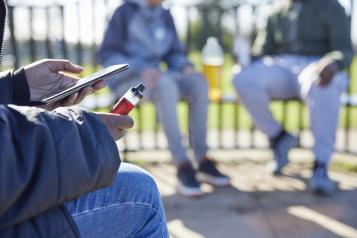Engaging young volunteers and giving them a voice

We spoke to Harriet Wright, who co-ordinates YouthWatch at Healthwatch Leeds.
Why did you start YouthWatch?
We established our YouthWatch group of 14-25 year olds because we were serious about young people having a voice and wanted them to have a place where they could feel comfortable to contribute. With 23% of the population in Leeds under the age of 19, it is vital that we listen to young people about their physical and emotional health.
What do YouthWatch volunteers do?
Our volunteers get involved in all aspects of our work, including visiting services, supporting projects, community outreach, writing blogs, making films, event planning, and data analysis.
We try to involve them in whatever is going on and if they haven’t got the skills or confidence, we try to provide them with the training they need to get involved.
A great example of their recent work was when our youth volunteers worked in partnership with Fixers UK and a local learning disability organisation Paperworks. They produced a short video to show how people with learning disabilities can feel if things aren’t properly explained to them by health professionals.
What are the benefits?
There are benefits for our young volunteers, us as an organisation and local services.
For many young people we have been able to provide an important first reference, which they receive after volunteering with us for over 30 hours.
Some of our young volunteers have gone on to careers in health and care, such as the graduate training programme for adult social care, nursing degrees, dental hygienists, care assistants and research and policy work to name but a few.
We benefit from all the energy, enthusiasm and ideas that young people bring.
Local health and care services benefit from hearing what young people really want and need from them. For example, Youthwatch have helped influence changes in local mental health services.
How can other local Healthwatch work more closely with young people?
We recruit our volunteers, including young people, through organisations such as do-it.org and the Leeds Volunteer Centre. We have also found targeted events and advertising to be effective.
Our advice to local Healthwatch looking to work more closely with young people is to ensure that you are seen as a place they want to be involved with.
Ask yourself these questions:
- How do your employees and other volunteers relate to young people?
- How will young people feel when they walk through the door?
- What opportunities do you have for young people?
- What image do you project – does it feel stuffy or a bit unwelcoming to young people?
Everyone needs to be on board with involving young people.
We had some training from the British Youth Council which helped everyone at Healthwatch Leeds to think about how we could be more ‘young people friendly’ and make participation meaningful for our youth volunteers.
We think it helped us to recruit because we now have a clearly defined role for them that is interesting and flexible. Our young volunteers also appreciate that we offer training opportunities to help their personal development.


